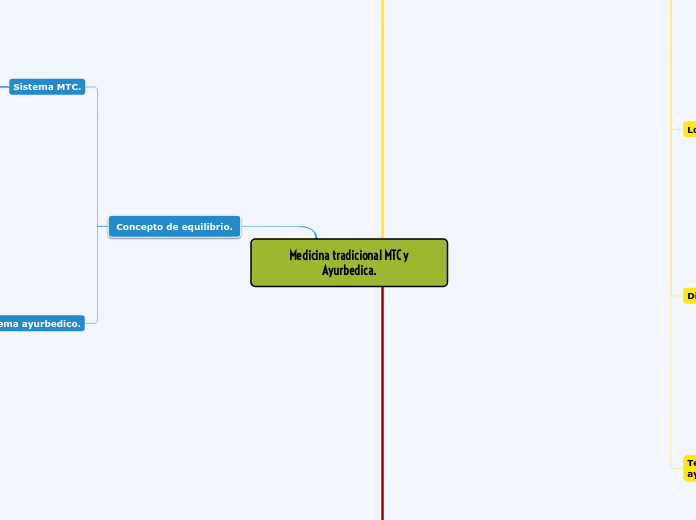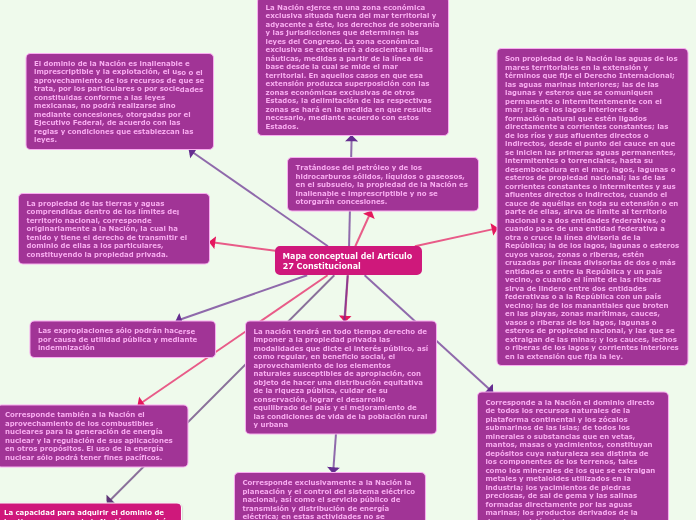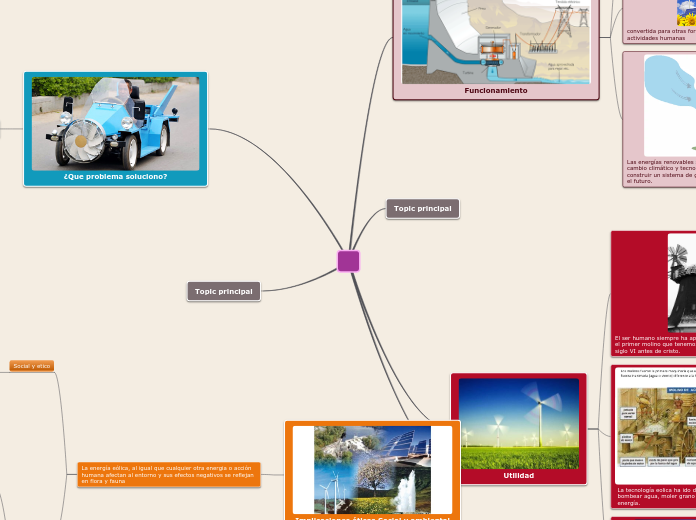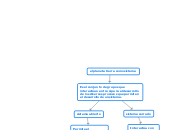Medicina tradicional MTC y Ayurbedica.
The first division between continents was made by ancient Greek navigators, who named them 'landmass, terra firma'.
Generally classified by convention rather than any strict criteria, nowadays seven regions are regarded as continents from a geopolitical point of view.
Concepto de equilibrio.
North America has five time zones and it is the only continent with every type of climate.
North America was named after the explorer Amerigo Vespucci and is also known as the 'New World'.
The world's largest sugar exporter among the seven continents - Cuba - also called the 'sugar bowl of the world' is located here.
Sistema ayurbedico.
The specialty of some animals is they are found only in a particular region and nowhere else in the world. North America is home to many of such amazing animals.
Name at least 6.
Name
El Ayurveda incluye en su
consideración, longevidad, rejuvenecimiento y auto-realización, terapias herbales, dieta, el ejercicio
físico, el yoga, los aromas, el tantra, los mantra y la meditación.
Abarca ocho ramas principales: pediatría, ginecología, obstetricia, oftalmología,
geriatría, otorrinolaringología (oído, nariz y garganta), medicina general y cirugía.
Ayurbeda significa conocmiento de la vida.
El Ayurveda se considera como una ciencia holística, la cual implica el equilibrio completo del
cuerpo, la mente, y el espíritu.
Sistema MTC.
There are 23 countries that make up North America.
Name as many of you can! Don't forget about their capitals.
Si se enferma el cuerpo la mente tambien.
En MTC se considera que mente y
cuerpo son lo mismo y que todo deriva de energía, en este caso Qi.
En la MTC es importante el paciente y no tanto la enfermedad.
Es un tipo de medicina muy pragmática destinada a buscar soluciones a problemas, de
forma que no se rompa la rutina diaria de trabajo.
Medicina tradicional china (MTC).
Australia is the world's smallest continent and is also known as an 'island continent' as it is surrounded by water on all sides.
It includes 14 countries and it is the least populated continent.
Its name comes from the Latin word 'australis' meaning 'southern' because it lies entirely on the south of the equator.
Terapias y tratamientos MTC.
Tai Chi y Qi Gong.
Dietoterapia.
Fitoterapia.
Masaje o Tuira.
Ventosas.
Moxibustión.
Acupuntura.
Diagnóstico MTC.
Australia is home to some animals that can't be found anywhere else in the world.
Name at least 6 of these unique animals.
Pulso.
Lengua.
Exploración del paciente.
Anamnesis o historia clínica.
Los cinco elementos de la MTC.
The largest sandstone monolith can be found here and it is one of Australia's most recognizable natural icons. It is the largest monolith in the world.
Name this rock and write down one of the characteristics it is famous for.
Metal.
Madera.
Energía Qi y los meridianos.
The largest coral reef can be found here.
Name this coral reef, add its length and mention what type of coral is it.
Los meridianos con polaridad Yang conectan con las vísceras (intestino
grueso, estómago, intestino delgado, vesícula biliar, vejiga, triple recalentador).
Los meridianos con polaridad Yin conectan con los órganos (pulmón, bazo, corazón,
hígado, riñón, pericardio).
El Qi es una fuerza vital, o energía cósmica, equivalente al prana en el Ayurveda.
Fundamentos de Medicina Tradicional China (MTC).
Out of 14, how many countries you can name?
How about these countries' capitals?
Principios del Ying y el Yang.
En el Yin hay Yang y en el Yang hay Yin.
El Yin y el Yang pueden transformarse en sus opuestos.
El Yin y el Yang se consumen y se generan mutuamente formando un equilibrio dinámico: cuando
uno aumenta, el otro disminuye.
El Yin y el Yang son interdependientes, no puede existir el uno sin el otro.
El ying y el yang.
Yang: Acción, movimiento, calor, el cielo, la parte masculina, la expansión.
Yin: Quietud, relajación, frío, la tierra, la parte femenina, la interiorización.
Medicina tradicional de la India llamado Ayurveda.
Asia is the world's largest continent of the seven continents in size, as it covers one-third of the earth's surface.
It includes 50 countries, and it is the most populated continent, 60% of the total population of the Earth lives here.
Terapias y tratamientos ayurvédicos.
Raktamoksha (purificación de la sangre o sangría).
Nasya o neti (descongestión nasal).
Basti (enemas).
Virechan (purgante o laxante).
Vaman (vómito terapéutico).
Diagnóstico ayurvédico.
What are the major animals found in Asia?
Name at least 4 of these animals.
Examen de los ojos.
Examen de tacto.
Examen de voz.
Examen de la lengua.
Examen de las heces.
Examen de la orina.
Examen del pulso.
Examen de la constitución física.
Los 5 elementos del Ayurveda.
The only man-made structure that can be seen from space is located here.
Name this construction and add other facts about it.
Tierra.
Agua.
Fuego.
Aire.
Éter.
Energía Prana y los chakras.
Asia houses the highest point on earth.
Name this summit and write down how tall it is.
Los chakras.
Sahasrara (corteza cerebral): Séptimo chakra, encima de la cabeza en la coronilla, color violeta.
Ajna o frontal (plexo cavernoso): Sexto chakra, en la frente entre las cejas, color índigo.
Vishudda (plexo laríngeo): Quinto chakra, en el cuello, color azul.
Anahata (plexo cardíaco): Cuarto chakra, en la columna a la altura del corazón, color verde.
Manipura (plexo solar): Tercer chakra, en el plexo solar, color amarillo.
Svadhisthana (plexo epigástrico): Segundo chakra, en la región sacral, en torno a la barriga, color
naranja.
Muladhara (centro bajo donde está la kundalini): Primer chakra, entre los genitales y el ano, color
rojo.
Energia prana.
El prana es considerado como la energía vital. Es la suma total de las energias que habitan en el universo.
Fundamentos del Ayurveda.
Name as many as you can out of the 48 countries located in Asia.
Write down the capitals too.
Los doshas.
Kapha.
Se asienta:
En el pecho, la garganta, la cabeza, los senos para nasales, la nariz, la boca.
Se encarga.
Apoyar la retención de la
memoria.
Ayudar a sanar las heridas.
Proveer humedad a la piel.
Mantener la resistencia al cuerpo.
Pitta.
Se asienta.
En el intestino delgado, las glándulas sudoríparas,
el estómago, la sangre, el tejido adiposo, los ojos y la piel.
Despierta.
Odio.
Celos.
Furia.
Inteligencia y entendimiento.
Color de piel.
La temperatura del cuerpo.
La absorción.
La digestion.
Vata.
Caracteristicas.
Se asienta en el instestino grueso,la cavidad pelvica, huesos y otros.
Gobierna.
Pulsaciones del corazon.
Parpadeo.
Respiracion.









